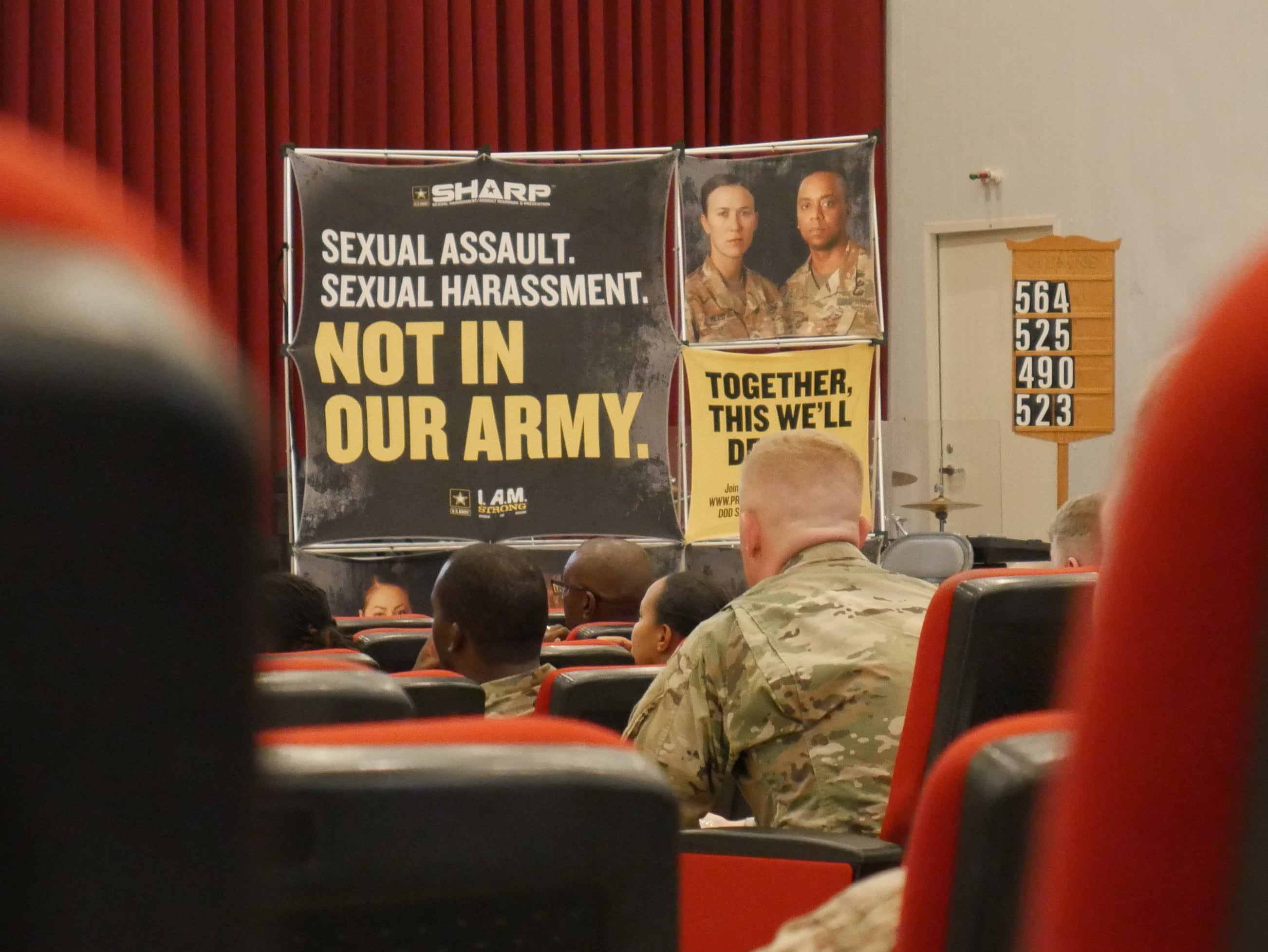More than half of women soldiers who report sexual harassment say they are repeatedly harassed, according to a Rand Corporation study about sexual harassment and gender discrimination faced by soldiers. The most prevalent forms of harassment are attempts at unwanted sexual relations, being “ignored,” “mistreated” and “insulted“ due to their gender and hearing they are not as good as men.
On Monday, Rand released the results of a five-month study that was requested by the Army as part of Defense Secretary Lloyd Austin’s February 2021 order to address sexual assault. The study, comprised of 1,582 female and 900 male active-duty soldiers who reported some form of sexual harassment to the 2018 Workplace and Gender Relations of Active Duty Members survey. It concluded that while men and women both face forms of harassment in the Army, women are more likely to face “serious” or “persistent” harassment.
The WGRA is a biennial survey mandated by Congress to asses the prevalence of sexual assault, sexual harassment, and related issues within the military. In 2018 the survey sampled 735,645 active-duty service members across the military, with 17 percent of respondents self-reporting a form of sexual assault or harassment.
The most prevalent form of harassment experienced by women — reported by 53 percent of respondents — was being “ignored, mistreated,” or “insulted” due to their gender. In addition, 45 percent of women reported hearing that they weren’t as good as men at their job.
More than one-third of women reported repeated attempts by other soldiers to establish an unwanted romantic or sexual relationship, compared to 9 percent of men. Another one-third of women reported hearing “repeated sexual talk” surrounding the exploits of their peers or being asked unwarranted questions about their own sex lives.
Army Sexual Harassment/Assault Response Prevention Director Jill Londagin said in a release that while sexual jokes and discussions are common in the workplace that “this behavior is unprofessional and disrespectful.”
A full 90 percent of women who participated in the study stated that these incidents occurred during some form of official military activity, with 80 percent reporting that harassment happened while at work during duty hours.
According to the Rand study, men in the Army experienced a different form of harassment than women. Being repeatedly told “you do not act like a man is supposed to” is the primary form of harassment or discrimination men face, followed by more than a third reporting that they face unwarranted “sexual talk” or “sexual jokes.” Overall, 87 percent of incidents impacting male soldiers occurred during required military activities.
Overall, the typical perpetrator in both men’s and women’s most severe experiences of harassment or discrimination are male enlisted military members. Additionally, women are more likely to indicate that the perpetrator of harassment was their direct supervisor or another higher-ranking member within their chain of command.
The Rand study did not call for any large-scale policy changes within the Army to combat sexual harassment and discrimination. Nor did it find that harassment and discrimination vary in prevalence from base to base. However, addressing the “most common” forms of harassment will increase retention and mitigate the risk of sexual assault.
“These findings are critical to more precisely tailor and most effectively target training, prevention, and response,” concluded Dr. Jenna Newman, social science advisor at the Army Resilience Directorate, and the Army’s project lead for this study.
Correction: This story has been updated to reflect that the Rand report culled its respondents from active-duty soldiers who reported some form of sexual harassment to the 2018 Workplace and Gender Relations of Active Duty Members survey.
James R. Webb is a rapid response reporter for Military Times. He served as a US Marine infantryman in Iraq. Additionally, he has worked as a Legislative Assistant in the US Senate and as an embedded photographer in Afghanistan.





